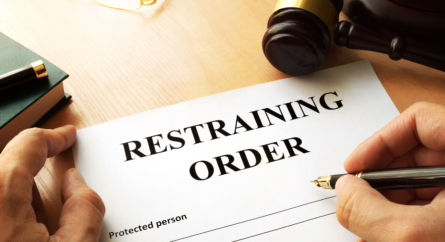Child Custody and Coercive Control
It is long-standing law in Massachusetts that the best interests of a child govern custody disputes. Said another way, when parents cannot agree and the court has to make custody and parenting time decisions, the well-being and future development of a child is paramount. In making those decisions, the court considers many factors, including whether one parent has abused the child or the other parent. Since 1998, Massachusetts law has provided protection in such circumstances. Specifically, evidence of a pattern or serious incident of abuse creates a rebuttable presumption that it is not in the best interests of the child to be placed in sole custody, shared legal custody or shared physical custody with the abusive parent.
For the purposes of this law, ”abuse” means:
- attempting to cause or causing bodily injury; or
- placing another in reasonable fear of imminent bodily injury.
”Serious incident of abuse” means:
- attempting to cause or causing serious bodily injury;
- placing another in reasonable fear of imminent serious bodily injury; or
- causing another to engage involuntarily in sexual relations by force, threat or duress.
Put simply, bodily injury or threat of bodily injury has long been required to prove “abuse.” In recent years, however, experts have opined that coercive control is domestic violence and it is abuse, which is why the law protecting household members from abuse was revised in 2024. The Abuse Prevention statute in Massachusetts, known as c. 209A, was amended to add “coercive control” to the definition of abuse for those seeking a restraining order. The law defines coercive control as “a pattern of behavior intended to threaten, intimidate, harass, isolate, control, coerce or compel compliance of a family or household member that causes the family or household member to fear physical harm or have a reduced sense of physical safety or autonomy.” Acts of control include, among other things:
- isolation
- threatening to harm a child, family member, or pet
- intentionally damaging property
- depriving someone of basic needs
- controlling, regulating, or monitoring activities, communications, movements, finances, economic resources, or access to services
- threatening to release sensitive images or information
Unfortunately, the law in Massachusetts relative to child custody does not currently contain the same language regarding coercive control and therefore does not include any presumption against giving custody to a parent who has exerted coercive control. Even more unfortunate is that domestic violence, including coercive control, can and often does continue even after separation of the parents and can even include using the court process to abuse the other parent through repeated filings and accusations against the abused parent. Research demonstrates that children who witness coercive control are harmed by the exposure. It is therefore incumbent on those charged with determining what is in the best interests of a child to consider coercive control and its impacts on the parent-child relationship. In some instances, a child exposed to coercive control may become defiant towards the abused parent and take on the language and behavior of the abusive parent.
Custody matters involving coercive control are complex. It can be more difficult to prove abuse when there are no visible bruises, broken bones, or trips to the emergency room. However, the court is charged with protecting the safety and well-being of children when there is a custody dispute. Even though the custody law has not caught up with the abuse prevention law as it relates to coercive control, Probate and Family Court judges will consider evidence of its impact on the best interests of a child. In cases of this nature, it is important to have an experienced attorney on your side to advocate for you.
Categorized: Child Custody
Tagged In: abusive parent, best interests of a child, coercive control, custody disputes







